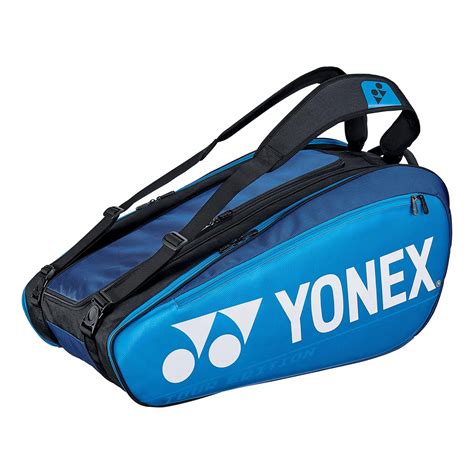software per prodotti di lusso | Software Di Luxury Fashion Marketing Per I Marchi
$135.00
In stock
The luxury goods sector, encompassing fashion, jewelry, watches, automotive, hospitality, and more, thrives on exclusivity, impeccable quality, and exceptional customer experiences. While craftsmanship and design remain paramount, the digital landscape has fundamentally reshaped how luxury brands operate. From product development and supply chain management to marketing and customer relationship building, technology plays an increasingly crucial role in maintaining and elevating a brand's prestige. This is where specialized software solutions, tailored to the unique demands of the luxury market, become indispensable. This article delves into the world of software for luxury products, exploring its various facets and highlighting how it empowers brands to enhance their operations and deliver unparalleled customer experiences. We will cover key areas such as PLM, ERP, AI-driven tools, and marketing software, specifically addressing how they cater to the nuanced needs of the luxury sector. Moreover, we will discuss the critical role of event management software in orchestrating VIP events and press launches, streamlining guest lists, and optimizing seating arrangements.
The Evolving Landscape of Luxury and the Need for Specialized Software
The luxury market is no longer solely defined by traditional brick-and-mortar boutiques and exclusive clientele. The rise of e-commerce, social media, and digital marketing has democratized access to luxury goods, albeit while simultaneously amplifying the need for brands to maintain control over their image and distribution. Consumers, particularly the younger generations, demand personalized experiences, seamless omnichannel interactions, and demonstrable ethical and sustainable practices.
Meeting these expectations requires a sophisticated technological infrastructure that can handle complex supply chains, manage intricate product lifecycles, personalize marketing campaigns, and deliver exceptional customer service across all touchpoints. Generic software solutions often fall short in addressing the specific challenges faced by luxury brands, particularly in areas such as:
* Maintaining Exclusivity and Brand Integrity: Ensuring that products are only sold through authorized channels and that the brand image is consistently presented.
* Managing Complex Supply Chains: Tracking the provenance of materials, managing relationships with artisanal suppliers, and ensuring ethical sourcing practices.
* Personalizing Customer Experiences: Understanding individual customer preferences and tailoring interactions accordingly.
* Protecting Intellectual Property: Safeguarding designs and preventing counterfeiting.
* Compliance and Regulatory Requirements: Adhering to international trade regulations and environmental standards.
Therefore, specialized software solutions designed specifically for the luxury goods sector are essential for navigating these complexities and achieving sustainable growth.
PLM for Luxury Goods and Companies: From Concept to Creation
Product Lifecycle Management (PLM) software is a critical tool for managing the entire lifecycle of a product, from initial concept and design to manufacturing, distribution, and eventual retirement. In the luxury sector, PLM plays a vital role in:
* Design and Development: PLM software enables designers to collaborate effectively, manage design iterations, and ensure that products meet the brand's aesthetic and quality standards. It allows for centralized storage of design files, specifications, and technical drawings, promoting consistency and preventing errors. For example, a luxury fashion brand can use PLM to manage the complex process of creating a new collection, from sketching initial designs to selecting fabrics and trims, creating prototypes, and finalizing the production patterns.
* Materials Management: Tracking the sourcing and procurement of high-quality materials is paramount in the luxury sector. PLM software can help brands manage their relationships with suppliers, track material costs, and ensure that materials meet sustainability and ethical sourcing standards. This is particularly important for brands that rely on rare or exotic materials.
* Production Planning and Control: PLM software helps optimize production processes, manage inventory levels, and ensure timely delivery of products. It can also be used to track production costs and identify areas for improvement.
* Quality Control: Maintaining the highest quality standards is essential for luxury brands. PLM software can be used to track quality control inspections, identify defects, and implement corrective actions.
* Compliance Management: Luxury brands must comply with a variety of regulations, including environmental regulations, trade regulations, and product safety regulations. PLM software can help brands manage compliance requirements and ensure that their products meet all applicable standards.
PLM systems tailored for luxury goods often incorporate specific features such as:
* Visual Merchandising Integration: Allowing designers to visualize products in different retail environments.
* 3D Modeling and Simulation: Enabling designers to create realistic prototypes and test product performance.
* Integration with CRM Systems: Providing a 360-degree view of the customer, allowing designers to create products that meet customer needs and preferences.
* Support for Artisanal Production: Managing the unique challenges of working with small-scale, artisanal suppliers.software per prodotti di lusso
Stealth ERP Software for the Fashion and Luxury Sector: Managing Complexity Behind the Scenes
Enterprise Resource Planning (ERP) software integrates all aspects of a business, including finance, accounting, human resources, supply chain management, and customer relationship management. In the luxury sector, ERP software is crucial for managing the complex operations that underpin the brand's image of exclusivity and impeccable service. Stealth ERP solutions, specifically designed for the fashion and luxury industry, offer a discreet and seamless approach to managing these complexities.
Key benefits of using Stealth ERP software in the luxury sector include:
Additional information
| Dimensions | 5.3 × 5.4 × 2.8 in |
|---|








